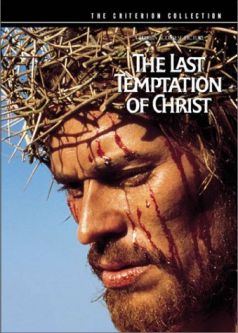Wells Cathedral defends decision to screen 'The Last Temptation of Christ'

The decision by Wells Cathedral to host a screening of Martin Scorsese's 1988 film "The Last Temptation of Christ" has stirred controversy.
The film is set to be shown in the cathedral's nave as part of the Bath Film Festival.
Festival organisers described Scorsese's work as "one of the most passionately religious films of all time".
"Bath Film Festival is thrilled to offer you the once-in-a-lifetime opportunity to see The Last Temptation of Christ in a setting that will do full justice to a film that has never received the praise it deserves," they said.
The screening will show a re-mastered version of the original film and those attending will have the chance to take part in a Q&A with Oscar Winning editor and long-time Scorsese collaborator, Thelma Schoonmaker, as well as hear a live video link address from Scorsese himself.
Members of the Cathedral's congregation however have objected to the use of their 12th Century Gothic cathedral to show the film, which is controversial because of its departure from the biblical account of the life of Jesus and sex scenes.
In a letter circulated among parishioners and quoted in The Times, objections are raised to the use of the cathedral for the display of an "appalling film" that "tackles the theme of debauchery".
"It leaves nothing out and shows Our Lord taking part in it, including a steamy love scene with Mary Magdalene," the letter continues.
"The film has shocked and horrified the Christian community for 25 years. It has been denounced in pulpits of all denominations in five continents.
"It is immeasurably hurtful to us that in the place where we say our prayers and receive the sacrament each week, this awful film is to be shown."
The film is based on the controversial 1953 novel by Nikos Kazantzakis, the story of which focuses on Jesus succumbing to a final temptation where he is offered a 'normal' life where he marries Mary Magdalene, and later the daughters of Lazarus, and then goes on to live the life of a simple good family man. Ultimately, he overcomes this 'last temptation' and dies on the cross.
The film starts with a disclaimer stating that the film is not based on the Gospels.
The screening on 25 of January will almost be 25 years to the day since the film had its UK premiere.
The initial release prompted outrage and occasional violent protest, with one of the most notable occurring when Molotov cocktails were hurled at the Parisian Saint Michel cinema.
The Dean of Wells, the Very Reverend John Clarke is quoted in The Times as saying: "Much has changed in public perceptions of faith over the past 25 years.
"In this more sceptical age the Church should not hide from controversy and part of the task of the cathedral is to promote an intelligent faith that is capable of attracting men and women to follow in the way of Jesus in the 21st century."
In a press statement from Wells Cathedral, director of the Bath Film Festival, Philip Raby said: "What the protesters overlook is that Scorsese was raised in a devoutly Catholic family, talked seriously at school about becoming a priest and thinks deeply about matters of faith and morality. In this film, he wrestles with a question that is in no way blasphemous – did Jesus have to experience the hopes, pleasures, fears and doubts of humanity to add divine meaning to his choice of sacrifice for humanity's sake?"











